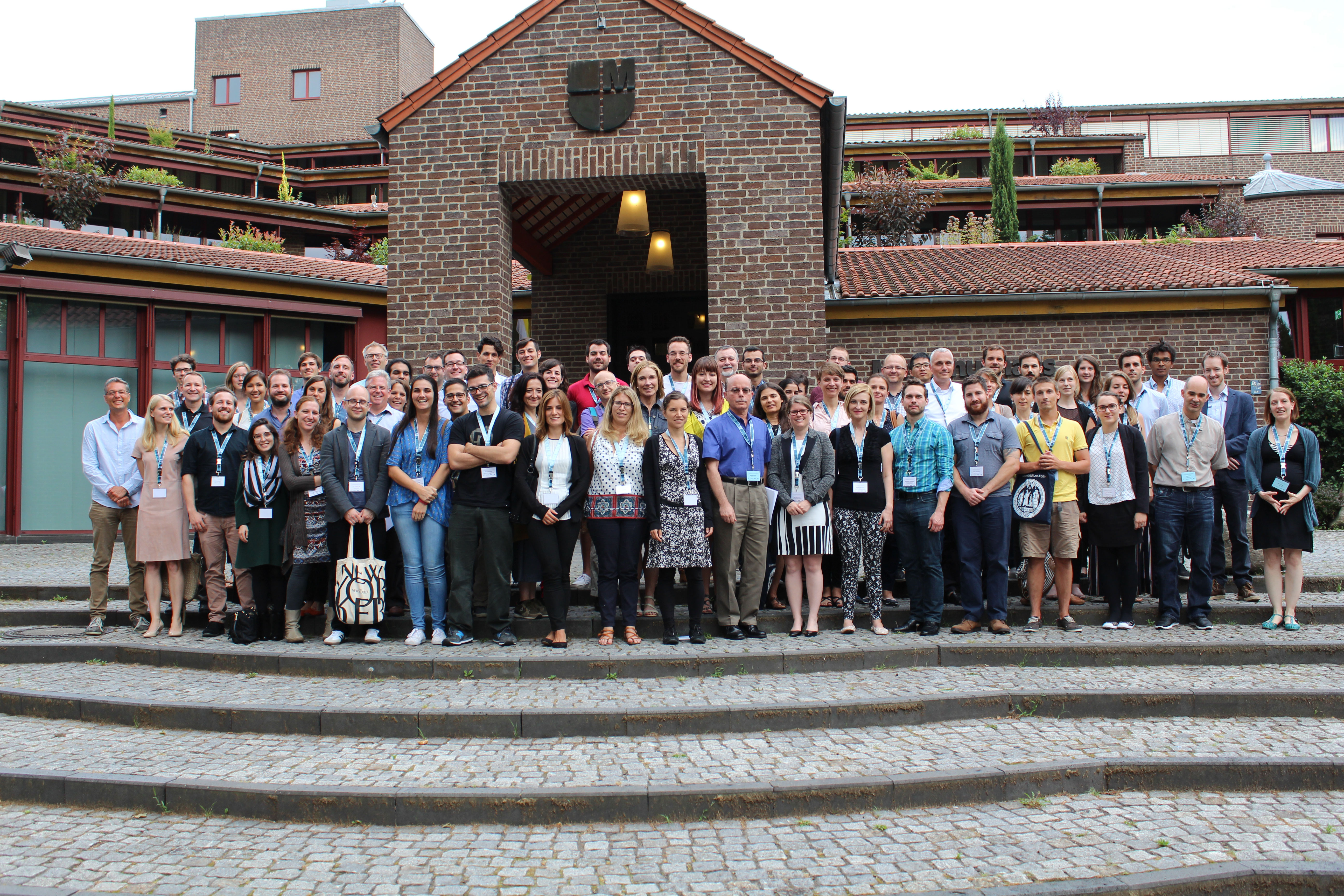Report on EASP Medium-Size Meeting: The Psychology of Attitudes: Experience-based Versus Information-based Attitude Processes
08.08.2016, by Sibylle Classen in meeting report
July 21th-24th, 2016, in Cologne, Germany

Theoretical Background
As ever, the study of attitudes and attitude change remains at the heart of social psychology. Recently, a renewed interest has emerged in the literature distinguishing attitudes based on one’s own experiences and attitudes that are based on third-party information. Although the difference between such experience-based and information-based attitudes is a classic theme, there is a vast amount of recent theorizing and studies within attitude research that potentially lead to a much better understanding of the differences and similarities between the two sources.
Size of the Meeting and Funding
The present medium-sized meeting brought together 70 researchers from Germany, the US, Belgium, Portugal, the Netherlands, Poland, Spain, Israel, France, and Italy to present and discuss these recent theories and studies. The group included 43 participants with a PhD (22 Post-Docs and 21 Professors) and 27 PhD students.
This rather high number for a medium-sized meeting was due to the high number of submissions after our call for papers via the EASP and SPSP mailing lists. The organisers tried to be as inclusive as possible, but unfortunately, not all applications could be included. It also became clear early on that despite the generous EASP sponsorship, additional funds would be necessary, and the Society for Personality and Social Psychology SPSP, the German Research Foundation DFG, the Center for Social and Economic Behavior C-SEB at the University of Cologne provided additional generous funds for this meeting, which allowed organising a much bigger event than originally planned.
The meeting was held at the heart of the City of Cologne, in the Maternushaus, in walking distance to the famous Cathedral and the Main Station.
Content of the Meeting
Over the course of 3 days, all participants took part in lively discussions, informative exchanges, and plans for future collaborations within this central theme. The program included two keynote talks by Pablo Brinol (“Treating thoughts as material objects”) and Teresa Garcia-Marques (“Processing feelings and cognitive control. Evidence from stereotyping“), 34 full talks, and 24 “Blitz”-Talks.
These talks were organised into the themes of Affective and Cognitive Influences on Attitudes, Familiarity and Fluency, Single and Dual Process Models of Attitude Acquisition, the Role of Instructions and Propositional Knowledge on Paradigms of Attitude Change, Attitude Characteristics: Attitude Extremity, Certainty, and Ambivalence, Persuasion and Inferences from Behavior, and Generalization and Context Effects in Attitude Acquisition. Despite the high number of contributions, we opted for a single session format, to allow everybody to attend all presentations.
General Overview of the Program
Officially, the program started on Thursday afternoon with the first keynote by Pablo Brinol and a welcome buffet afterwards. On Friday, we opened with the first sessions of 12 Blitz-Talks, that is, 5 min presentations that concisely summarize a finding. This increasingly popular new format was received very positively, and the quantity and quality of the following discussions testify to the success of this format. The day continued with 3 thematic sessions and the keynote presentation by Teresa Garcia-Marques. The day ended with a BBQ that continued with topical discussions long into the night. Saturday started again with a Blitz-Talk session and ended with a dinner in a typical Cologne location, the “Schreckenskammer”, which means translated “The Chamber of Horrors”; but no one had a horrible experience and also the third evening ended with fruitful discussions.
The full program together with the abstracts can be downloaded here: https://www.uam.es/otros/persuasion/attitude-meetings.html
Conclusions
Given both the breadth as well as the depth of the contributions and discussions, a general and summarizing conclusion is almost impossible. However, a tentative summary regarding the overarching theme of the meeting seems to be that the clear distinction between attitude acquisition and attitude change from experiences (e.g., due to evaluative conditioning) and acquisition and change from information might be more apparent than real. For example, attitude change due to experiences (such as throwing away a list with written-down thoughts) strongly depend on the meaning that is given by participants to the experiences. It seems that both routes interactively determine attitude acquisition and changes, and future theories should incorporate both routes to allow a more comprehensive picture of this core topic of social psychology.
In addition, we received very positive feedback regarding both the scientific as well as the social part of the meeting. We want to thank all the people who participated for their time and their commitment, the great presentations, the lively and constructive exchange, and for the immensely enjoyable time we all spend together.
Organization
The meeting was organised locally by Christian Unkelbach, Anne Gast, and Sascha Topolinksi, and externally by Pablo Briñol, Geoff Haddock, Rob Holland, Greg Maio, Richard Petty, and Duane Wegener. Invaluable support was provided in all organisational matters by Monika Wegener, and during the conference by Lea Boecker, Jasmin Richter, Borys Ruszpel, Hans Alves, Pinar Ugurlar, and Taylor Benedict.